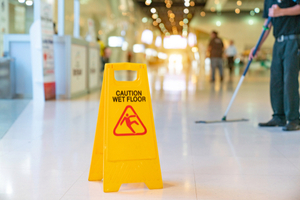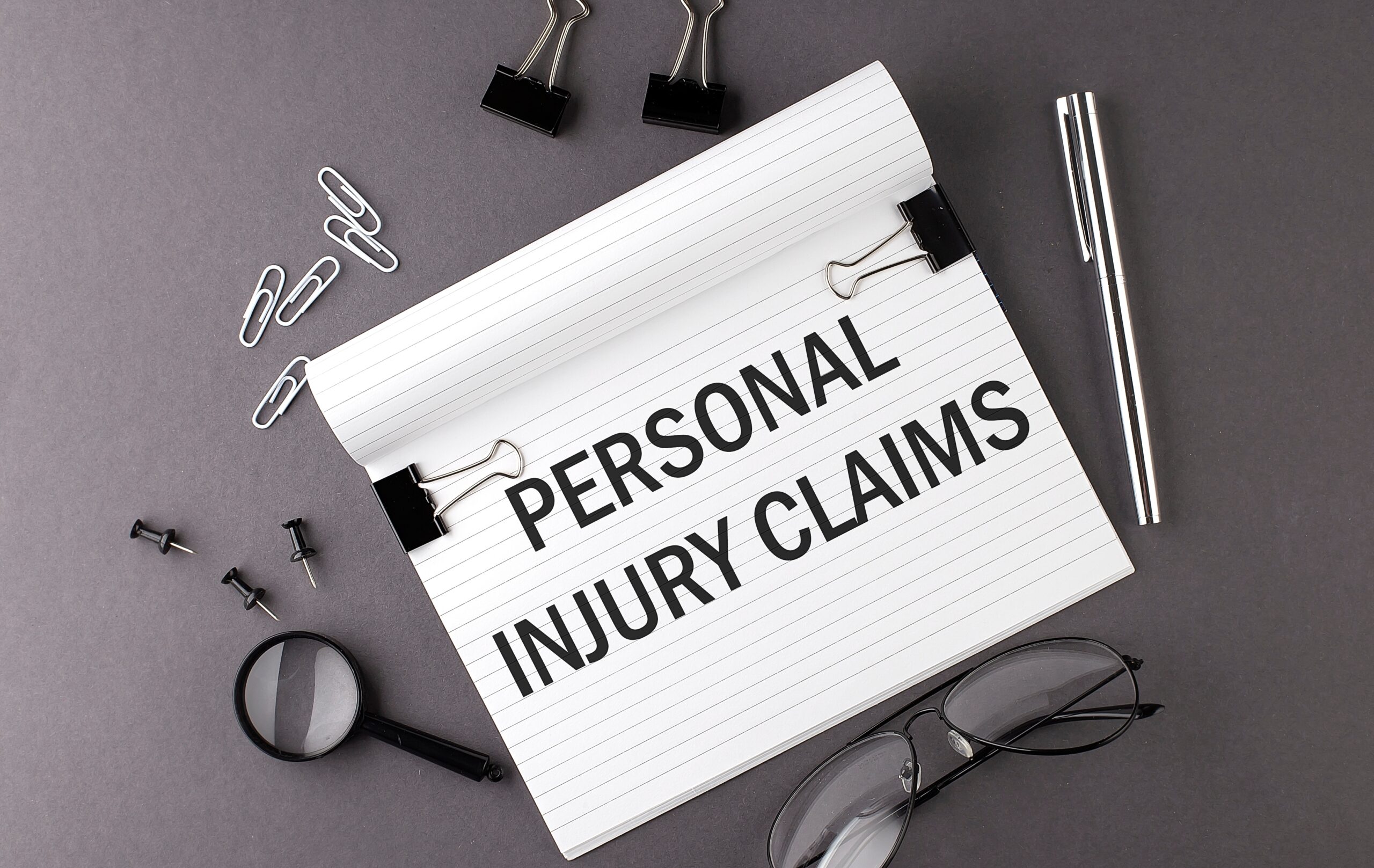Slip and fall accidents frequently happen at bustling and busy businesses like grocery stores. Owners of these stores are almost never on-site to oversee the day-to-day operations. Instead, they rely on managers to run their stores for them. However, these managers and operators don’t always monitor the store in the same way that someone who has everything to lose, like an owner, would.
Regardless of who is in charge, it is the duty of the owner, manager, and operator to make sure that their grocery store is safe enough for shoppers.
This means that they must take the steps necessary to keep grocery stores free from hazards that could injure customers and employees.
Anyone who is walking through a grocery store can slip, trip, or fall in a way that results in severe and costly injuries.
If you were a slip and fall victim, you may be able to obtain compensation for your injuries if you can prove that your injuries were caused by the store’s negligence. This means you must prove that the person in charge of the property was aware or should have been aware of the dangerous conditions and did nothing to prevent them from injuring you.
Common Causes of Slips and Falls in Supermarkets
The most common slip and fall scenario in a grocery store that people think about is a puddle of liquid on the ground. But there are actually a lot of other common culprits. These include:
Refrigerator Leaks
Commercial refrigerators require routine maintenance to function properly. Older refrigeration systems and improperly installed systems can be serious hazards as they leak water or other slick liquids onto the ground from defrosting freezers or leaking internal components.
Produce Departments
The common practice of misting fruit and vegetables keeps produce looking fresh and appealing to customers. It is also one of the reasons the produce department attracts slip and fall accidents. As customers load their carts with recently misted produce throughout the day, water can fall onto the ground. If stores don’t use the proper mats or fail to clean regularly, floors can quickly become slippery and can lead to a slip and fall incident.
Floral Departments
Just like the produce department, the floral department relies heavily on water to keep their products looking fresh. Pools of water that accumulate on the floral department floors are difficult to see and can create dangerous slipping hazards for unsuspecting shoppers.
Torn Carpeting and Unsecured Mats
Replacing torn carpets is part of the regular maintenance of a grocery store. Otherwise, a customer’s foot could possibly catch where there’s a tear and trip. Similarly, unsecured mats, like those by the front doors or in produce departments, can move out of place or bunch up, creating a tripping hazard.
Roof Leaks
A slip and fall that happens because of water on the ground caused by a roof leak could be the property owner’s fault if they knew about the leak. When a grocery store notifies the building owner about a structural problem, the owner should fix it in a reasonable timeframe.
While a grocery store is awaiting repairs, it’s up to management to sufficiently block off the hazardous area and to continuously clean up any oversplash that may accumulate.
Vendor Product Hazards
Vendors regularly deliver large quantities of products for the grocery store to sell. Additionally, they are responsible for putting that product on the shelves too, which means that they are interacting with the same spaces that customers use to shop.
Some of the most common vendors include bread vendors, chips and snacks vendors, and soda vendors.
These workers are often in a rush to unload so that they can make their rounds to other retailers. As a result, they may not be too concerned with any spills or debris they leave behind.
Vendor visits are typically scheduled in advance. This means that grocery store managers should know exactly when they’ll be on property. If a slip and fall accident happens, that schedule is one piece of evidence that your attorney can use to show a grocery store should have known about the hazard or possibility of a hazard left by a vendor.
Blocked Aisles

Employees of busy grocery stores often have to restock empty shelves during business hours. If they’re not careful, they may spill items or the pallets they’re unloading can overcrowd an aisle. Or the same boxes can inadvertently block aisles.
While some may argue that a reasonable person would have seen a pallet in the walkway and therefore should have avoided injury, it does depend on the circumstances. This type of case can be difficult to pursue. A personal injury attorney will work to prosecute your injury claim on the basis that your injury was caused by a store operator’s negligence.
Injuries That Can Result from A Slip And Fall
Falling in a grocery store is no laughing matter. Depending on your age and health, the injuries you received from falling down onto a hard tile floor or hitting your head on a shelf on the way down can be catastrophic.
The following are some of the most common types of injuries that result from slip-and-fall incidents in grocery stores:
- Broken Bones
- Soft Tissue Injuries
- Traumatic Brain Injuries (TBIs)
- Spinal Cord Injuries
- Back and Neck Injuries
- Hip Fractures
- Ankle or Wrist Injuries
- Shoulder Injuries
- Knee Injuries
Proving Liability for Your Injuries
For a slip and fall case to be successful, proving that a store is liable for your injuries is critical. Proving that the store behaved in a negligent manner is an important component of a slip and fall case.
To prove liability, you must show that a grocery store had actual notice or constructive notice of a hazard.
Actual notice means that a grocery store was directly aware of an issue. For instance, if a refrigerator has been leaking for weeks and multiple people have been out to fix it unsuccessfully, that would be actual notice.
Constructive notice means a business should have been aware of dangers. Say, for example, that there is water on the floor but the store didn't cause it. One can argue that they couldn’t have known there was water on the ground. But if there are lots of mud tracks through the puddle indicating the condition was there for a long time, or if video shows employees or managers walking past it, one can easily make a case that they should have been reasonably aware of the hazard.
What to do if you Slip and Fall in a Grocery Store
In order to protect yourself, here is what you should do after you are injured from a slip and fall in a grocery store.
Firstly, seek any necessary medical treatment as soon as possible. Even if you are not seriously injured, get checked out by a medical professional. Some injuries can be hidden or delayed due to the immediate shock, swelling, and adrenaline you experience after a slip and fall.
Look for the cause of your fall—like a wet floor, blocked aisle, or poor lighting—and document it.
Take photos and videos, if you are able to. Take note of the time and area of the store where your slip and fall occurred. Also document the names and descriptions of any employees who were on duty. And if possible, gather witness statements and their contact information. Your attorneys may need to talk to witnesses later so having their names and phone numbers will be helpful for your injury claim.
Ask for surveillance footage. An estimated 180 million surveillance cameras have been installed in the United States. Chances are your accident was caught on video, especially in a grocery store. You should also insist that the store fills out an incident report and hands you a copy.
Finally, contact a slip and fall attorney as soon as possible. After a slip and fall, proof of the accident dissolves quickly. A grocery store will do their best to fix the hazardous conditions leading to your injury. Video may mysteriously disappear or may be recorded over after a week or so. And store employees may fall victim to selective amnesia. Hiring a personal injury attorney can assure that an official request for video, records, and documentation are submitted as soon as possible to remedy your damages.
Hiring a Chicago Slip and Fall Attorney Can Make All the Difference
If you were injured because of a slip and fall in a Chicago grocery store, or anywhere else in Illinois, you may be eligible to recover compensation for your damages. Damages may include medical bills, wages you lost while you were out of work, and any pain and suffering you may have endured.
While nothing can undo the stress, physical pain, and mental anguish your injuries have caused, receiving compensation can relieve a significant part of your financial burdens.
[Read: How Long Will It Take To Settle My Grocery Store Slip And Fall Case?]
If you’ve been injured in a slip and fall accident, contact the attorneys at Abels & Annes. Our slip and fall accident attorneys are experienced at investigating falls in grocery stores and on other premises. Our main goal is to prove negligence, recover the most compensation possible for our clients, and ensure that each person who comes through our doors is treated with dignity and respect.
For a free initial consultation, call us at 312-924-7575 or contact us online.



